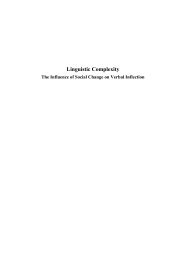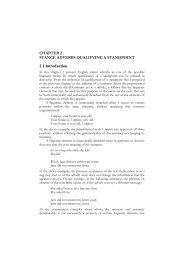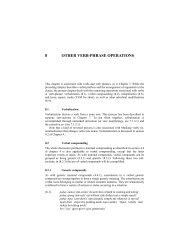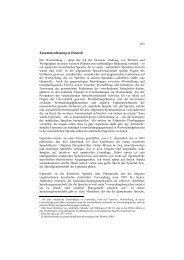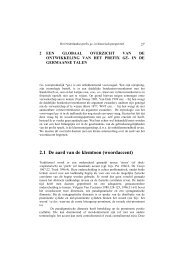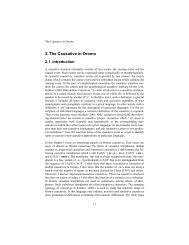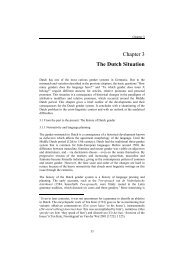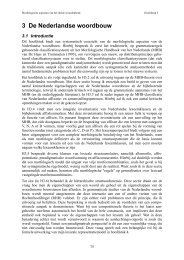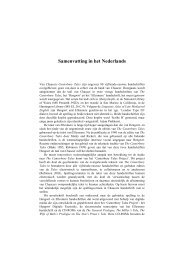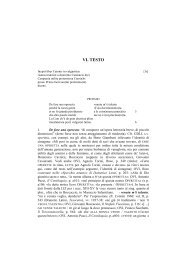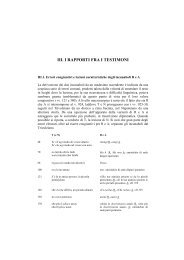Chapter 9 - LOT publications
Chapter 9 - LOT publications
Chapter 9 - LOT publications
You also want an ePaper? Increase the reach of your titles
YUMPU automatically turns print PDFs into web optimized ePapers that Google loves.
Accounts of SLI in Afrikaans<br />
Finally, as noted above, Gopnik’s Feature Deficit Hypothesis does not<br />
seem to offer any account for the difficulties children with SLI<br />
experience with the production and interpretation of question<br />
constructions, (non-)co-referential relationships, and passive<br />
constructions. Accordingly, it is not clear whether, on this hypothesis,<br />
Afrikaans-speaking children with SLI should experience difficulties in<br />
this regard when compared to their typically developing peers.<br />
9.4.3. Are the predictions of the Feature Deficit Hypothesis for<br />
Afrikaans borne out?<br />
There were at least five predictions made about the language of<br />
Afrikaans-speaking children with SLI, in terms of Gopnik’s Feature<br />
Deficit Hypothesis. The first was that such children should find it<br />
difficult to consistently use the correct singular vs. plural forms of nouns;<br />
hence, they would have to rely on memorisation to determine the plural<br />
form of each noun. Recall that, due to the nature of the Afrikaans plural<br />
system, the actual prediction is that Afrikaans-speaking children with and<br />
without SLI should demonstrate more or less the same level of accuracy<br />
in using plural forms. This prediction was not borne out by the<br />
Afrikaans data: The 6-year-olds with SLI were outperformed by those<br />
without SLI.<br />
The second prediction concerned grammatical gender. As such gender is<br />
not encoded in Afrikaans, it was predicted that the language of<br />
Afrikaans-speaking children with SLI should not demonstrate any<br />
problems in this regard. No task specifically assessed grammatical<br />
gender; therefore, it is not possible to state whether or not this<br />
hypothesis was supported.<br />
The third prediction concerned the grammatical expression of person<br />
and case: Afrikaans-speaking children with and those without SLI should<br />
at times use the incorrect form of the pronoun. This prediction was not<br />
fully borne out by the Afrikaans data. The typically developing 6-yearolds<br />
fared better than those with SLI and better than the 4-year-olds in<br />
terms of both elicited and spontaneous production of pronouns. Certain<br />
errors of case (on both pronouns and se-constructions) were made by the<br />
6-year-olds with SLI but not by those without SLI.<br />
270



